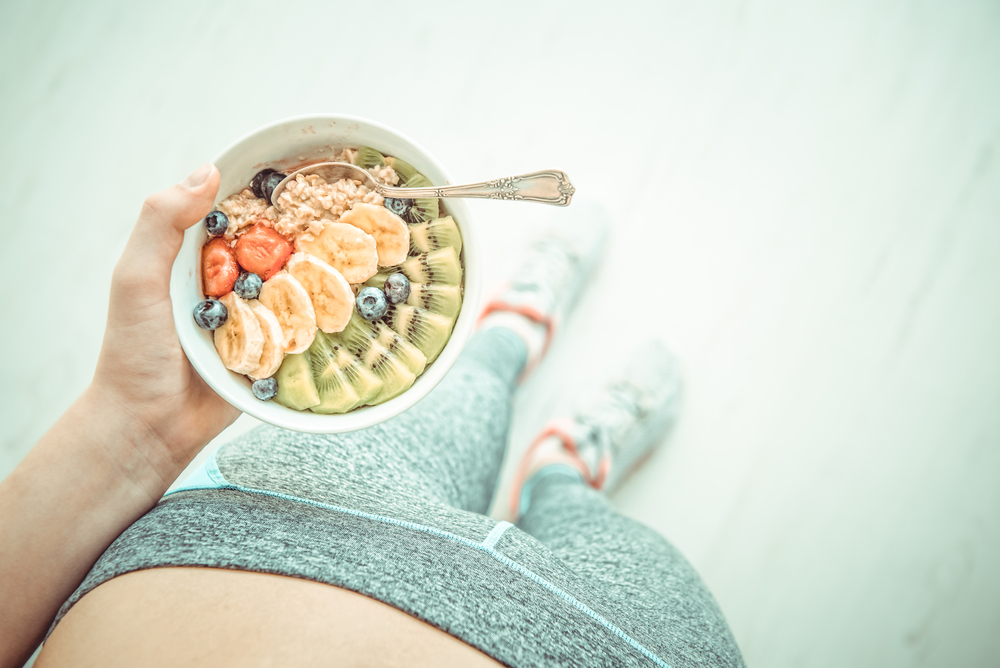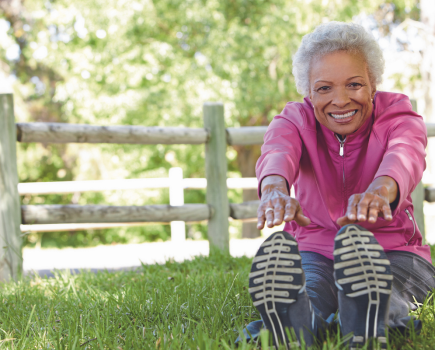Fasted exercise can have incredible fat burning effects, but recent research suggests there’s a benefit to an early breakfast. We examine both sides of the debate to help you find the right fitness fit for you.
Do you practise ‘fasted’ exercise? You might not have thought about it that way, but if your preferred gym slot is before breakfast, that’s exactly what you’re doing. Fitness fanatics have often treated fasted exercise as the Holy Grail of workouts, and if you’re keen to burn fat, starting on an empty stomach could be the answer. The thinking is that your blood sugar and glycogen levels are lower and therefore your body has to turn to burning fat as your carbohydrate levels are low.
A study from the University of Bath found that participants who exercised in a fasted state showed a change in certain genes in their fat tissue, likely to result from them using stored fat for fuel. And more research on the subject emerged last summer (from the same university!) when a small study found that eating breakfast before working out means you burn carbs during exercise, plus it primes the body to metabolise food more rapidly for the rest of the day. We spoke to two experts to examine the pros and cons of each, to help you decide on your morning routine…
‘Having an empty stomach makes you train harder’
says Sue Rogers, co-owner and head trainer at F45 Ealing (f45training.co.uk).
It has been shown that fasted exercise helps you burn around 20-30 per cent more fat, which is obviously good news if your main goal is to lose some weight. This is because you are using your body’s fat stores for energy, whereas if you’d had breakfast you’d be using the glucose energy from the carbohydrates contained in it. It may feel like an uncomfortable idea to exercise without the ready-made energy from food, but it’s actually the opposite. If you exercise within a three-hour window of eating you’ll often feel lethargic, as your body is focused on breaking down the food, which requires energy. Having an empty stomach will often leave you feeling more alert, and able to train harder and more effectively. Studies have shown that people who regularly train this way become better over time at burning fat at higher levels of intensity.
How to do fasted training
It’s advisable to start fasted training gradually to get used to how it feels. Make sure you keep up your water intake before and during exercising to prevent dehydratation. Make sure your dinner the night before is nutritious with a good balance of protein, carbs and fat. Replenish your energy levels after exercise, with a nutritious meal or snack to allow your body to recover. It’s not advisable to do fasted training if you have a condition such as diabetes or high or low blood pressure.
‘Fasted exercise will burn muscle before fat’
says Luke Crossley, health and fitness tutor (thetrainingroom.com).
The biggest misconception when it comes to fasted exercise is the belief that the body will automatically be forced to burn off excess stored fat as a fuel source as we have no carbohydrates in our bodies to use. This couldn’t be further from the truth, and in reality the brain will tell the body to go looking elsewhere for energy first. Once your glycogen has been used up your body would actually prefer to break down lean muscle mass, which it can then convert into glucose and in turn use as fuel during your workouts. Muscle mass also actually costs a lot of calories to maintain, so your body would basically rather get rid of some of this muscle mass and will also slow your metabolism down in a desperate attempt to hold on to as much fat as possible. This is known as the ‘starvation response’. Other negatives of fasted diets are that you will also feel very lethargic throughout the day – let alone during exercise – and this can start to affect your work. Since carbohydrates are the primary fuel source for your brain, you may find it very hard to concentrate.
How to do cardio, non-fasted
Eat a carb-based meal (perhaps a small bowl of porridge) at least 90-120 minutes before exercising. Don’t eat too much, or have your meal any closer to your workout than 90 minutes, or you may end up feeling sick or sluggish.









